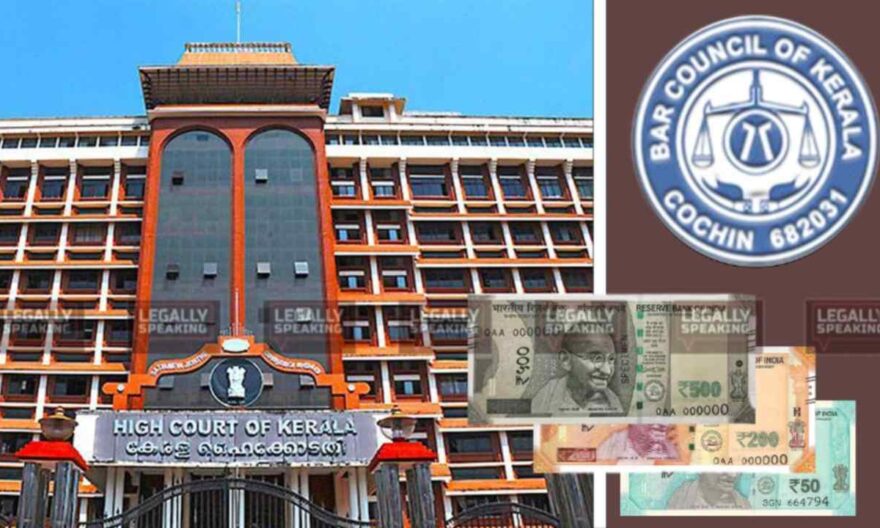
The Kerala High Court has recently directed the Bar Council of Kerala (BCK) to accept only ₹750 as enrolment fees from law graduates who seek admission as advocates.
This directive will remain in effect until the Bar Council of India (BCI) formed a uniform fee structure applicable to all State Bar Councils.
Earlier this year, a single-judge of the court passed an interim order directing the BCK to provisionally accept enrolment applications from law graduates upon payment of ₹750. However, this order applied exclusively to the petitioners who had challenged the BCK’s decision to impose an enrolment fee of ₹15,900.
Subsequently, the BCK filed an appeal against the interim order, which was brought before a division bench. The bench comprised of Chief Justice SV Bhatti and Justice Basant Balaji passed an order extending the benefit of the single-judge’s order to all law graduates wishing to enroll in the State.
“To a pointed query from the Court, learned senior counsel appearing for the Bar Council of Kerala has stated that so far as the petitioners are concerned by accepting Rs.750/- enrolment fee, the enrolment of respective petitioners has been completed. In the fitness of things in the exercise of our jurisdiction, by according to the petitioners herein, the representative status to agitate the grievance for and on behalf of similarly situated graduates, who would be interested in getting enrolled on the rolls of the Bar Council of Kerala, we extend the same benefit to such of the aspirants as well. Such a course would avoid a series of individual cases by the aspirants” the bench stated.
The single judge’s order had come on a plea moved by ten law graduates from the Government Law College, Ernakulam, who were part of the 2019-22 batch, had filed a plea challenging the Bar Council of Kerala’s (BCK) fee of ₹15,900. They argued that such a high fee posed a significant financial burden for them and numerous other students.
The petition contended that the BCK had exceeded its rule-making authority by imposing fees higher than the prescribed ₹750 stated in the Advocates Act. In response, the BCK filed an appeal, asserting that there were no statutory restrictions preventing the State Bar Council from levying charges necessary for enrolment.
During the proceedings, the BCK’s counsel informed the bench that all the original petitioners would be permitted to enrol by paying ₹750, subject to the final decision of the High Court. It was also mentioned that the Bar Council of India would convene a meeting, as directed by the Supreme Court, to establish a uniform enrolment fee applicable across all Bar Councils in India. The BCK would participate in the meeting and make a decision accordingly.
Consequently, the court extended the benefits of the interim order to all law graduates.
The next hearing for the appeal is scheduled in two months’ time.




